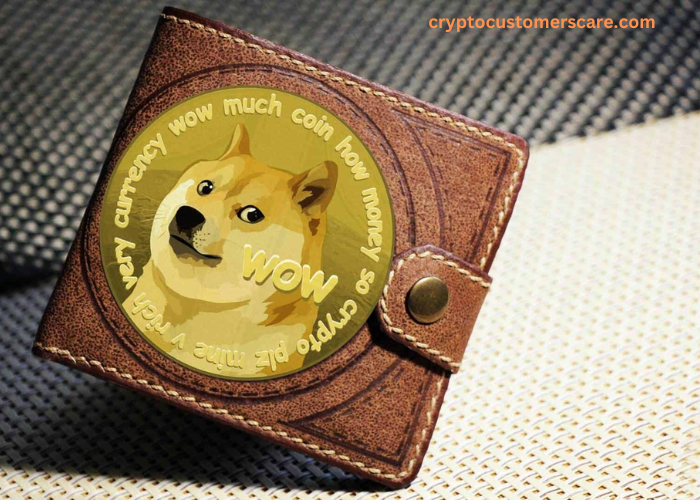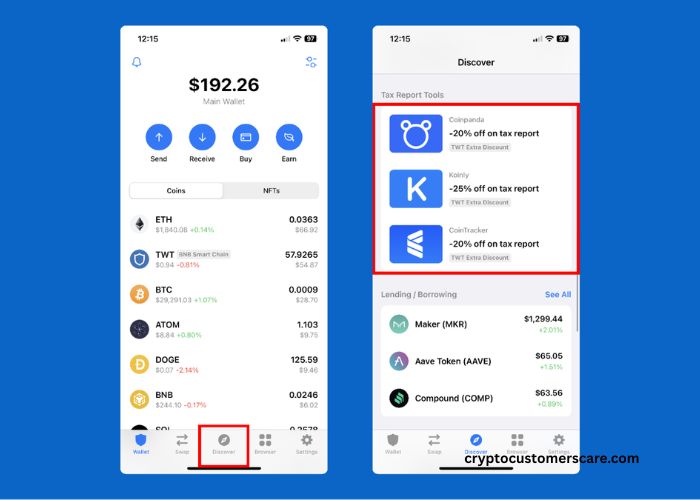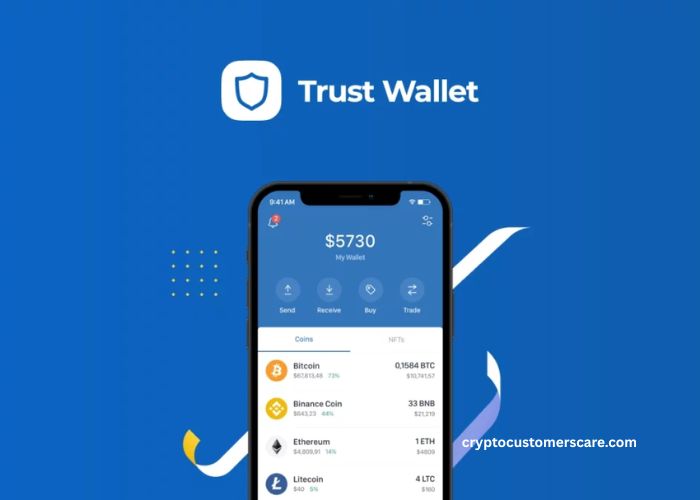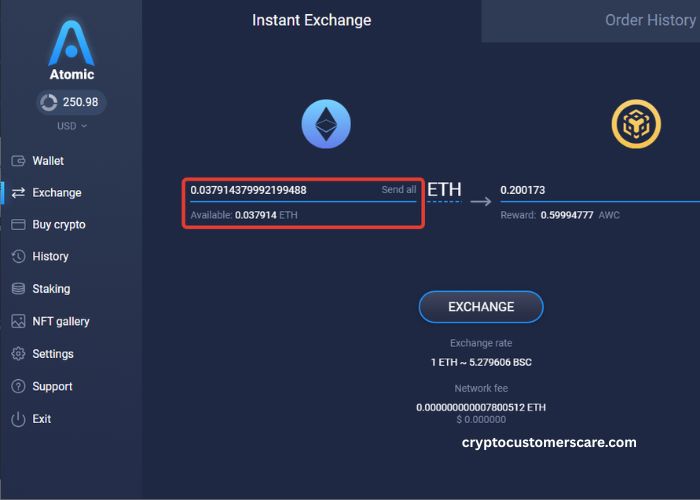Dogecoin has gained significant popularity in the cryptocurrency world. Originally started as a joke, this digital currency quickly gained a loyal following. As a Dogecoin investor or user, it is essential to have a reliable and secure Dogecoin wallet to store, send, and receive your coins.
A Dogecoin wallet is a software program or physical device that allows you to manage your Dogecoin holdings. It provides you with a unique address to receive funds and a private key to access and transfer your coins. Choosing the best Dogecoin wallet is crucial to ensure the safety of your investment. In this article, we will explore the different types of Dogecoin wallets and provide you with recommendations for the best ones available.
What To Consider When Choosing a Dogecoin Wallet
When selecting a Dogecoin wallet, there are several factors to consider. First and foremost, security should be your top priority. Look for wallets that offer strong encryption and two-factor authentication to protect your funds from unauthorized access. Additionally, consider the wallet’s reputation and track record. Opt for wallets that have been around for a while and have a positive reputation within the cryptocurrency community.
User-friendliness is another important aspect to consider. A good Dogecoin wallet should have an intuitive interface that allows you to easily navigate and manage your funds. Look for wallets that offer additional features such as the ability to exchange Dogecoin for other cryptocurrencies or fiat currencies.
Lastly, consider the wallet’s compatibility with your devices. Ensure that the wallet you choose is compatible with your operating system, whether it be Windows, macOS, Linux, or mobile platforms like iOS and Android.
Types of Dogecoin Wallets – Software, Hardware, and Online Wallets
There are three main types of Dogecoin wallets: software wallets, hardware wallets, and online wallets. Each type has its own advantages and disadvantages, so let’s explore them in more detail.
Software Wallets
Software wallets are programs that you install on your computer or mobile device. They offer convenience and accessibility, as you can easily access your funds as long as you have your device with you. Software wallets can be further classified into two categories: full-node wallets and lightweight wallets.
Full-node wallets download the entire Dogecoin blockchain onto your device, allowing you to independently verify transactions. While these wallets offer the highest level of security, they require a significant amount of storage space and can be resource-intensive.
On the other hand, lightweight wallets, also known as SPV (Simplified Payment Verification) wallets, do not download the entire blockchain. Instead, they rely on trusted nodes to verify transactions. Lightweight wallets are faster to set up and require less storage space, making them a popular choice for everyday users.
Hardware Wallets
Hardware wallets are physical devices specifically designed to store cryptocurrencies securely. These wallets store your private keys offline, away from potential online threats. They typically connect to your computer or mobile device via USB and require you to physically confirm transactions on the device.
Hardware wallets provide the highest level of security and are resistant to malware and hacking attempts. However, they come at a higher cost compared to software wallets and may not be as convenient for frequent transactions.
Online Wallets
Online wallets, also known as web wallets, are wallets that operate on cloud-based servers. They allow you to access your Dogecoin funds from any device with an internet connection. Online wallets are easy to set up and offer a user-friendly interface.
However, online wallets come with their own set of risks. Since your private keys are stored on a remote server, there is a higher risk of hacking and theft. It is crucial to choose a reputable online wallet provider and enable additional security measures such as two-factor authentication.
Top Software Wallets for Dogecoin
When it comes to software wallets for Dogecoin, there are several options to choose from. Here are our top recommendations:
- Dogecoin Core Wallet: This is the official Dogecoin wallet and is a full-node wallet. It offers strong security and allows you to independently verify transactions. However, it requires a significant amount of storage space and may not be suitable for users with limited resources.
- MultiDoge: MultiDoge is a lightweight wallet that offers a simple and user-friendly interface. It does not require downloading the entire blockchain and is suitable for users who prioritize convenience.
- Exodus: Exodus is a multi-currency wallet that supports Dogecoin along with other popular cryptocurrencies. It has a sleek and intuitive design, making it a popular choice among beginners.
Top Hardware Wallets for Dogecoin
If you prioritize security and are willing to invest in a physical device, hardware wallets are the way to go. Here are our top recommendations for hardware wallets for Dogecoin:
- Ledger Nano S: The Ledger Nano S is a popular hardware wallet that supports a wide range of cryptocurrencies, including Dogecoin. It offers strong security features and a user-friendly interface.
- Trezor Model T: The Trezor Model T is another reputable hardware wallet that provides robust security for your Dogecoin holdings. It features a touch screen display and supports various cryptocurrencies.
Top Online Wallets for Dogecoin
If you prefer the convenience of online wallets, here are our top recommendations:
- MyDogechain: MyDogechain is a web wallet that offers a simple and user-friendly interface. It allows you to easily send, receive, and store your Dogecoin funds.
- Guarda Wallet: Guarda Wallet is a multi-currency online wallet that supports Dogecoin. It offers a secure and intuitive platform with additional features such as built-in exchange services.
Comparison of the best Dogecoin wallets
Here is a comparison of the best Dogecoin wallets based on their key features:
| Wallet | Type | Security | User-Friendliness | Compatibility |
| Dogecoin Core | Software | High | Moderate | Windows, macOS, Linux |
| MultiDoge | Software | Moderate | High | Windows, macOS, Linux |
| Exodus | Software | Moderate | High | Windows, macOS, Linux, iOS, Android |
| Ledger Nano S | Hardware | High | Moderate | Windows, macOS, Linux |
| Trezor Model T | Hardware | High | High | Windows, macOS, Linux |
| MyDogechain | Online | Moderate | High | Web-based |
| Guarda Wallet | Online | High | High | Web-based |
How To Set Up and Use a Dogecoin Wallet
Setting up and using a Dogecoin wallet is a straightforward process. Here are the general steps to get started:
- Choose a wallet: Select a Dogecoin wallet that suits your needs and preferences. Consider the type of wallet, security features, and user-friendliness.
- Download or access the wallet: If you have chosen a software wallet, download and install the wallet software on your device. For online wallets, sign up for an account on the wallet’s website.
- Set up your wallet: Follow the instructions provided by the wallet provider to set up your wallet. This may involve creating a strong password, generating a unique address, and backing up your wallet’s recovery phrase.
- Receive and send Dogecoin: To receive Dogecoin, share your wallet’s address with the sender. To send Dogecoin, enter the recipient’s address and the amount you wish to send. Confirm the transaction and wait for it to be processed.
- Keep your wallet secure: Regularly update your wallet software, enable additional security measures such as two-factor authentication, and keep your private keys and recovery phrase in a safe place.
Tips for Keeping Your Dogecoin Wallet Secure
While Dogecoin wallets provide a secure way to manage your funds, it is crucial to take additional precautions to ensure the safety of your investment. Here are some tips for keeping your Dogecoin wallet secure:
- Use strong passwords: Choose a unique and strong password for your wallet. Avoid using common passwords or easily guessable phrases.
- Enable two-factor authentication: Two-factor authentication adds an extra layer of security by requiring a second verification step, such as a code sent to your mobile device, when logging into your wallet.
- Keep your wallet software up to date: Regularly update your wallet software to ensure you have the latest security features and bug fixes.
- Backup your wallet: Create a backup of your wallet’s recovery phrase and store it in a safe place. This will allow you to recover your funds in case your device is lost or damaged.
- Be cautious of phishing attempts: Be wary of phishing attempts that aim to steal your wallet information. Always double-check the website’s URL before entering your login credentials.
Conclusion
Choosing the best Dogecoin wallet is essential to ensure the security and accessibility of your Dogecoin holdings. Consider the type of wallet that suits your needs, whether it be a software wallet, hardware wallet, or online wallet. Evaluate the security features, user-friendliness, and compatibility of different wallets before making a decision.
Based on our recommendations, the top software wallets for Dogecoin are Dogecoin Core, MultiDoge, and Exodus. For hardware wallets, we suggest the Ledger Nano S and Trezor Model T. If you prefer online wallets, MyDogechain and Guarda Wallet are excellent choices.
Remember to follow the necessary precautions to keep your Dogecoin wallet secure. Use strong passwords, enable two-factor authentication, and regularly update your wallet software. By taking these steps, you can confidently manage your Dogecoin investment and navigate the world of cryptocurrencies.







